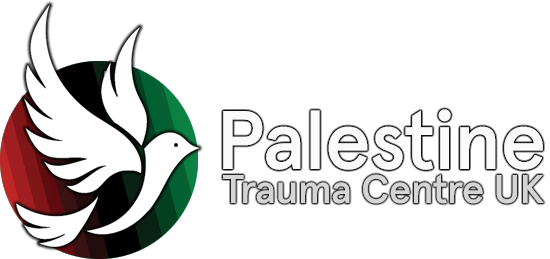
Days of Joy
Days of Joy started in 2021. It grew out of The Friday of Joy Initiative which began in 2014 as organised games for children in a street near where they lived. It evolved into a series of activities and entertainments to help children re- awaken their powers of resilience in the face of traumatic events and depression.
A team of 10 animators, clowns and psychologists arrive in an area after Friday prayers and block off a street. Children and families sit or stand around the entertainers, having first met them, had their faces painted and warmed-up with some movement to music.
The activities have five aims or principles:
Shaking the Trauma. This involves progressive loosening of muscular tension through easy, repetitive movements, often to music. Increasing present-moment awareness through this collective activity distracts children away from traumatic memories, at least for the duration of the exercise.
Testing personal functioning skills in a safe place. Street games are played, often involving parents with the children, thus reinforcing filial relationships. Personal interactions with any network of psycho-social support empowers individual resilience. This starts with the family, then moves outwards to neighbours, friends and teachers. The competitive games do not test success or failure, but celebrate participation. Disabled people are encouraged to take part. Nurturing relationships are strengthened in this environment where the child can regain a sense of positive personal growth.
Therapy through drama
Getting everyone involved in the fun during our Days of Joy
Indirect therapy through drama. Clown and mime acts can offer Graded Exposure Therapy with small moments of knock-about humour or mild shocks (such as bursting balloons). Actors in animal costumes act out everyday scenes from children’s lives (e.g. not wanting to go to school because of nightmares) and in doing so bring personal fears into a collective space where they can be faced and challenged. This revitalises the child’s inner protection system without risk of reliving the trauma.
Storytelling as an “identity enriching meaning system”. The Hakawati, or storyteller, reads and dramatizes a traditional story for the whole community to identify with and be moved or amused by. It reinforces everyone’s sense of being Palestinian with a culture and history to be proud of. The term quoted above comes from the research by American psychologist Brian Barber on how awareness of social/political contexts creates meaning for traumatic events and enhances resilience. (Barber, 2008)
Fostering community spirit. Participation in community events strengthens a child’s sense of security. The street where all this happens is transformed from a dull, uninspiring area to a place with a happy, exciting memory and a place where such joyful moments can happen again. The final activity is a conga up the street and a collective run back down it. The symbolism of community energy and cohesion is reinforced by this climax to the events.
The Sports Project
This was devised in 2018 and one part of it has been trialled. It is intended to treat PTSD symptoms and uses some principles from Mindfulness to enable the young person to deal with hyper-arousal or extreme anxiety. The aim is to refocus attention away from emotional states which are based on distressing narratives to present-moment awareness of sensory states, such as breathing, muscle tension, heart rate, motor impulses, pains or tightness. This is similar to the theory of “Felt Sense”.
The child is gently encouraged to focus on these physical signals without imposing judgements or meanings, but to create a space between perception and response. Over time, this process eases anxiety and gives the child coping strategies for the future. Sporting activities, especially Kung Fu exercises, develop these skills. Working in groups, the children develop sensitive mutual awareness and acceptance. They manage arousal levels for each task, challenging their anxiety indirectly by focusing on any immediate physical tension.




